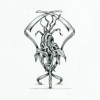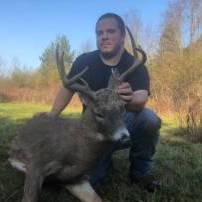Report: How effectively is CWD & other diseases detected?
-
Similar Content
-
By BuckSteady
New hunter to NY here. Found some public land to hunt, it’s a WMA. I wish I read the regs more thoroughly because I threw up a ladder stand yesterday and today when I was re-reading them, I saw you can’t put temporary stands on WMAs, only on state forests and other such state land. I honestly didn’t know I wasn’t allowed to, I even put my name and license # on the stand. I was going to go take it down tomorrow but it’s an hour drive so I wanted to ask, what do DEC officers do if they find a ladderstand like mine on a WMA? Is this an automatic fine or whatever? Will they just call me and tell me to come get it? Confiscate? How often do officers go through areas like WMAs and check for stands? Any info would be helpful. I’ll still probably go take it down tomorrow, although I have seen other stands up on the WMA, I just prefer to stay on the right side of the law myself. Thanks!
-
By CapDistPatriot
Southern Zone only. I don't understand why they don't include rifle, only Bow & Muzzy...
https://www.dec.ny.gov/press/121333.html
-
By Rebel Darling
Here is DEC's harvest forecast for whitetail during the 2016 hunting season:
http://www.dec.ny.gov/docs/wildlife_pdf/deerforecastr4.pdf
Interesting info... I doubt my WMU, 4L will ever have doe tags, and it's interesting to read that DEC is concerned by possible "misuse" of the 4J doe tags.
-
By Rebel Darling
In case anyone is interested, the NYS Senate is considering the nomination of Basil Seggos as Commissioner, DEC:
7:40 p.m.
http://www.ustream.tv/channel/nysenate
-
By Rebel Darling
Here's the link with the content below:
http://content.govdelivery.com/accounts/NYSDEC/bulletins/1374987
Agency Will Encourage Hunters to Voluntarily Pass Up Young Bucks
A multi-year study to guide buck management in New York State found deer hunters prefer to harvest older bucks and that further expanding mandatory antler restrictions is not warranted at this time, Department of Environmental Conservation Acting Commissioner Basil Seggos announced today. Instead, the state will encourage hunters to voluntarily pass up shots at younger bucks as a management method to best serve the interests of deer hunters across the state.
"Through this study, DEC engaged with the hunting community to determine the best deer herd management practices to benefit both the deer population and our state's wildlife enthusiasts," Acting Commissioner Seggos said. "DEC staff concluded that promoting voluntary restraint was appropriate given the high level of hunter support for increased availability of older bucks. Using a sound scientific approach to wildlife management is an essential strategy to expand hunting opportunities and growing the hunting economy in New York."
DEC and the New York Cooperative Fish and Wildlife Research Unit at Cornell University conducted the study in response to long-standing interests expressed by many hunters for DEC to adopt regulations to reduce the take of yearling bucks (male deer younger than 1.5 years old) to increase the number of older bucks in the population. Moving forward, DEC intends to work with several leading sportsmen groups across the state to educate hunters on their important role in deer management, the impacts of their harvest choices, and the likely changes in the deer population as more and more hunters voluntarily refrain from taking young bucks.
The study included a statewide survey of 7,000 deer hunters conducted in fall 2013 by the Human Dimensions Research Unit at Cornell University, a nationally recognized leader in surveys to assess public opinions and attitudes on wildlife-related issues.
DEC considered six alternatives to increase the proportion of older bucks in the population, including mandatory antler restrictions during all or portions of the archery and firearms seasons, shorter firearms seasons, a one-buck per hunter per year rule, promoting voluntary restraint by hunters, and a no change option. DEC analyzed these alternatives for each of the state's seven distinct buck management zones. The decision process weighted hunter values 3:1 over potential impacts on population management and costs, but the survey found that hunter values did not strongly lean in any one particular direction.
"The issue of antler restrictions has divided our deer hunting community for too many years and I am pleased to see that the DEC used a very structured, non-biased decision-making process to determine the outcome," said Larry Becker, Chairman of the New York Sportsmen's Advisory Council. "It is most important that everyone understands that DEC has listened to what the majority of the deer hunters in the State want and that this was the primary factor that drove the final decision. The hunters spoke and DEC listened."
DEC plans to work with sportsmen and women and other stakeholder groups, including the New York State Conservation Council (NYSCC) and Quality Deer Management Association (QDMA), in the coming year to develop a cooperative, educational effort to encourage hunters to pass up shots at young bucks. It is clear that hunters' choices can and do affect the age and size of bucks in our deer herd, and when hunters choose to pass young bucks, it can make a difference for other hunters as well.
"The Quality Deer Management Association (QDMA) is pleased New York has engaged its deer hunters at such a high level to learn their values and desires," said Kip Adams, QDMA Director of Education & Outreach. "We feel this is a positive step for the DEC and for hunters, and we are extremely supportive of the Department's proposed educational campaign on the benefits of protecting yearling bucks."
"The New York State Conservation Council would like to applaud the hard work of both the DEC Deer Team and Cornell University, as well as the hunting community that participated in this important work," said Rich Davenport, NYSCC Big Game Committee Co-Chairman. "We look forward to assisting the DEC and other sportsmen groups with educating the hunters of today and tomorrow on the benefits of voluntary harvest restraint and the importance of the management role hunters of New York play. It's a critical component to ensure we have healthy deer herds well into the future."
Detailed technical reports on the analysis of alternatives and results of the hunter survey are both available on the DEC website, along with more succinct summaries of the work that was done. DEC plans to hold public information meetings later this spring and summer to discuss these results and get hunter feedback on ways to encourage others to pass up shots at young, small-antlered bucks.
The meetings will also provide an opportunity for hunters and others to provide input on other aspects of DEC's deer management plan, which will be updated in the coming year. The current (2012-2016) statewide deer plan is also available on the DEC website.
-
-
Recently Browsing 0 members
No registered users viewing this page.







Recommended Posts
Join the conversation
You can post now and register later. If you have an account, sign in now to post with your account.